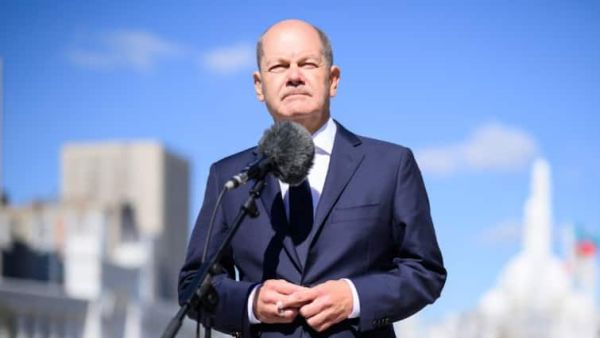
German Chancellor Olaf Scholz fired Finance Minister Christian Lindner on Wednesday, leaving the government on the verge of collapse. Scholz said he would call a vote of confidence in his government early next year.
According to a BBC report, the Chancellor said he didn’t have any trust in Linder, who leads a rival party that is a part of the ruling “traffic light” coalition government which includes — Scholz of the Social Democratic Party, Lindner of the Free Democratic Party, and Robert Habeck of the Green Party.
Internal tensions had been brewing for weeks before it exploded into the open on Wednesday night. According to BBC, Scholz said that Linder had betrayed his confidence and put the interests of his party over those of the country.
The announcement comes amid fears that the incoming Trump administration could further strain Germany's already ailing economy. Meanwhile, Lindner’s Free Democratic Party said it had left the coalition but Habeck said the Greens would remain.
This move means Scholz’s government no longer has a majority in the parliament. According to CNN, Scholz said he would now call a confidence vote for January 15, which could allow elections to be held by the end of March next year. The coalition government led by the chancellor has governed Germany since 2021.
As per the CNN report, Scholz said that he would remain in office until January 15, and try to push through important legislation, indicating his plans to work with opposition leader Friedrich Merz’ of the Christian Democratic Union (CDU) on economic and defence plans.
“The economy cannot wait until after the elections,” Scholz said.
Some of the issues were created following Russia's full-scale invasion of Ukraine in 2022 sent energy prices surging and left Germany facing an increase in defence spending, and the cost of taking in 1.5 million Ukrainian refugees.
Germany is now facing its second year without economic growth.
Scholz and the Green allies aim to address this by relaxing constitutional rules on public debt to allow more spending. Linder, however, proposes funding tax cuts by reducing welfare and social budgets and delaying environmental goals.
If the MPs, vote against the government, it could trigger a snap election within weeks, instead of waiting for the scheduled date in September.